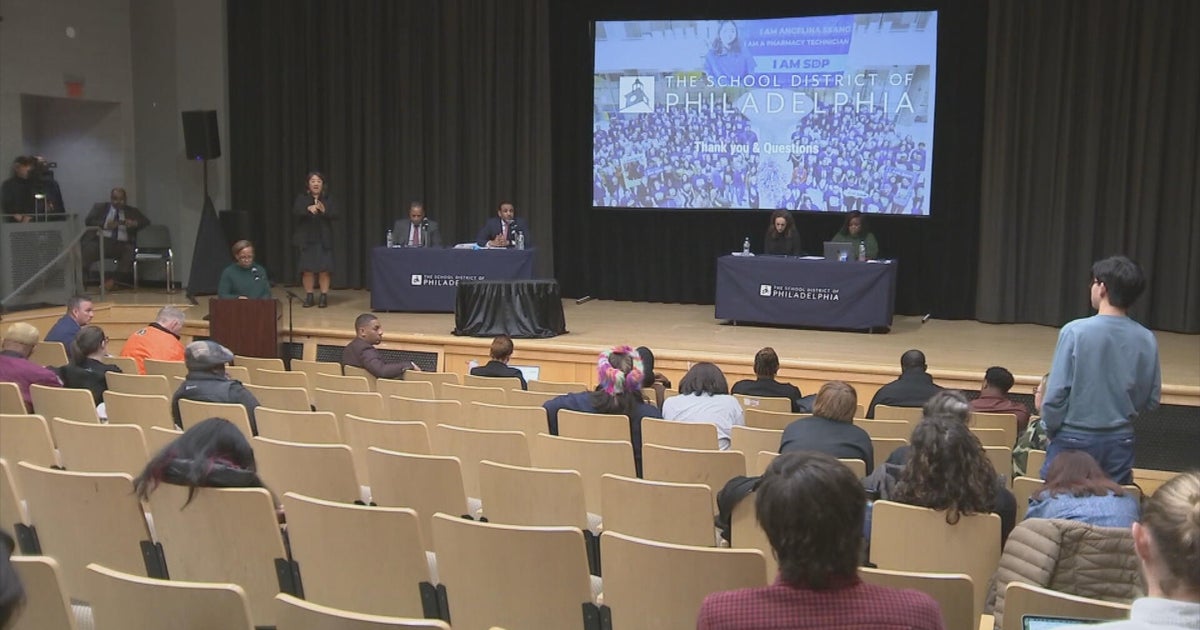Scott Pleases Everglades Activists With Restoration Plan
TALLAHASSEE (CBS4) - Some environmentalists expressed optimism Friday at a proposal by Gov. Rick Scott aimed at trying to resolve a years-long dispute over restoring the Everglades, despite the state's assertion that it needs several more years to get the ecosystem clean.
According to The News Service of Florida, the state needs an additional six years beyond the 2016 deadline that had been set out for cleaning up the water flowing into the Everglades, the Scott administration said during a meeting with U.S. Department of Interior officials in Washington on Thursday.
While some environmental groups slammed the proposed delay, the head of the Everglades Foundation said Friday that the proposal by Scott to get the restoration project moving again with a counter offer to federal demands for specific clean up benchmarks represents a "fairly significant change in the governor's posture from combative to cooperative.
"We are frankly very optimistic about the direction that things are now moving," said Kirk Fordham, CEO of the Everglades Foundation. "There is some hope that we could see some significant movement forward."
Fordham did express some concern about the proposal to take until 2022 to accomplish the restoration, but said the state of the economy has to be acknowledged.
"The timetable is a concern," Fordham said during a conference call a day after Scott went to Washington for talks with Interior Secretary Ken Salazar and unceremoniously announced he proffered a new state suggestion for how the restoration could be accomplished. But, Fordham said, "we're realistic….It's unlikely we're going to hit the 2016 timeline (anyway)."
The plan laid out by Florida officials is an alternative to one put forth by a federal judge who blasted the state earlier this year for taking too long to clean up the ecosystem. Lawmakers have already once lengthened the timeline for reaching a certain level of nutrients in the system, extending it to 2016 after it had originally been 2012. The goal is no more than 10 parts per billion of phosphorous going into the system.
The Scott plan would also shift some plans for construction projects from private land to state-held land, which could help get them started sooner. The question of how to clean up the ecosystem has been the subject of litigation for years, and Scott said in a statement that it was time to hammer out some sort of compromise.
"Today, I traveled to Washington, D.C., to ask our federal and state Everglades restoration partners to agree on a strategy that puts the ecosystem first and prevents costly, ongoing litigation from derailing our mutual progress toward restoration," Scott said late Thursday.
"….This plan puts to use strategic lands already in public ownership so that these projects can be authorized and built promptly, in the right locations and at a reasonable cost to the taxpayers," Scott said. "A healthy Everglades is part of a healthy economy. Yet it is also one of America's treasures. It fully deserves our best efforts to resolve differences, re-focus on our goals and deliver results. This strategy can make that happen."
Federal officials didn't agree to any specifics, and a new date for getting the ecosystem clean would likely require approval from U.S. District Judge Alan Gold, who earlier ordered the state to speed up the restoration effort.
Joining Scott in Washington were Department of Environmental Protection Secretary Herschel T. Vinyard Jr. and South Florida Water Management District Executive Director Melissa Meeker. In addition to Salazar, U.S. Environmental Protection Agency Administrator Lisa Jackson, U.S. Army Corps of Engineers Deputy Secretary of Civil Works Jo Ellen Darcy and U.S. Department of Justice Assistant Attorney General Ignacia Moreno were in the meeting.
"DEP and the SFWMD will continue to work closely with the U.S. Environmental Protection Agency to identify and implement projects that will treat water to ultra-low levels of phosphorus," DEP said in a statement.
Fordham said environmental activists would need more information about the details of what's in the proposal before they could fully support it, and noted that the administration hasn't said how it would be paid for.
Fordham also said sugar companies – agriculture is the source of much of the phosphorous, though the companies argue they already do much to reduce pollution - should be required to pay, not taxpayers, which may be unrealistic anyway given the anti-tax mood of the moment.
"That certainly is a non-starter," Fordham said of the prospect of asking taxpayers to foot the bill.
(TM and © Copyright 2011 CBS Radio Inc. and its relevant subsidiaries. CBS RADIO and EYE Logo TM and Copyright 2010 CBS Broadcasting Inc. Used under license. All Rights Reserved. This material may not be published, broadcast, rewritten, or redistributed. The News Service of Florida contributed to this report.)







